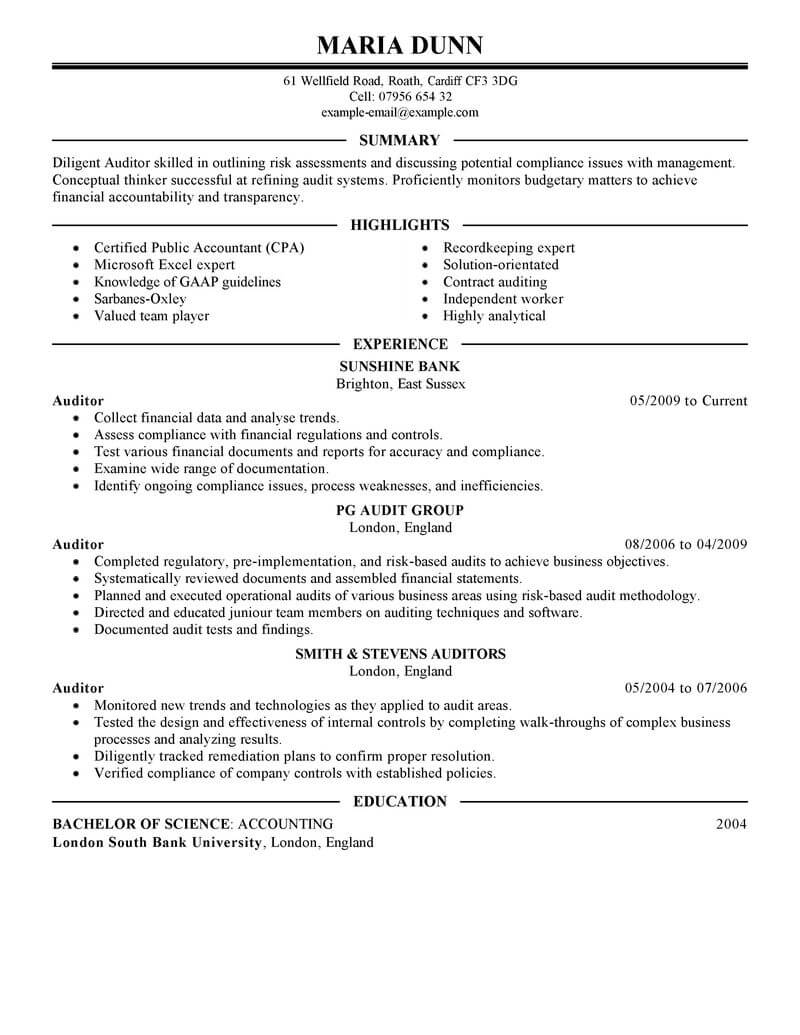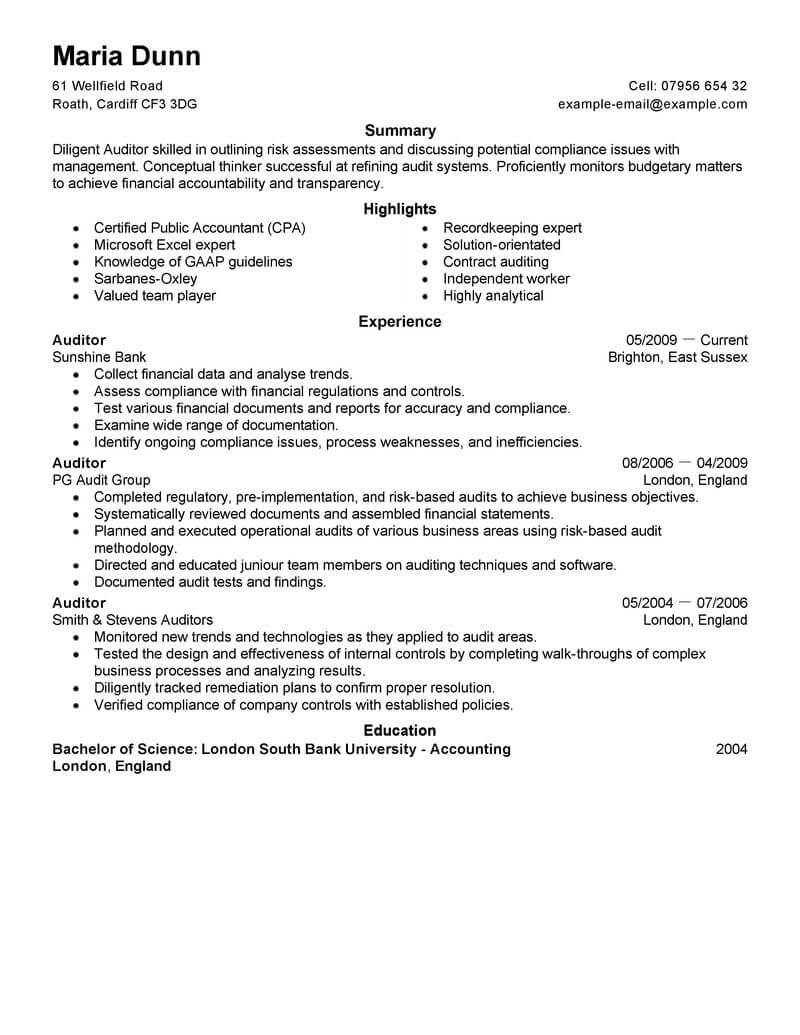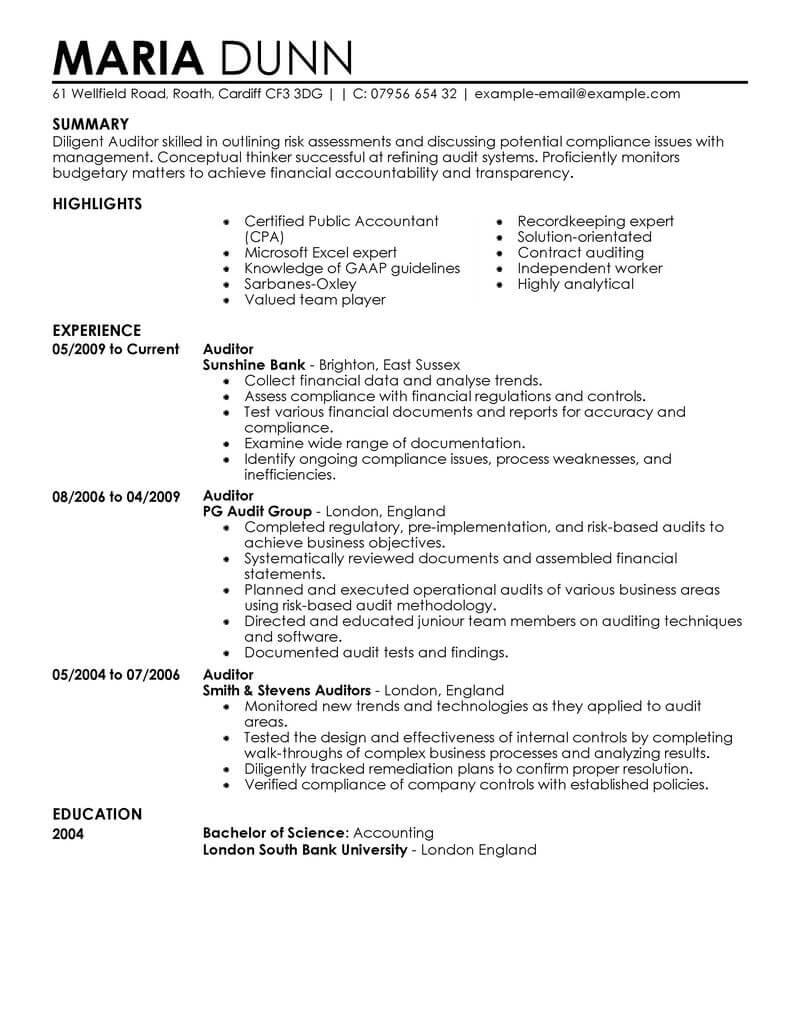Best Auditor Resume Example
Published: Thursday 14th of December 2017; Words Count: 1900
As the person charged wtih ensuring that a company’s financial records are accurate and that taxes are paid on time, your financial auditor resume should show your employer that you are a responsible and diligent employee. Our financial auditor resume example will give you the guidance you need regarding proving your value and listing your experience as a financial auditor. This section of your financial auditor resume should also include skills such as your ability to collect financial data and analyze trends. You should also include your Bachelor’s Degree in Accounting or a related field. If you hold any additional relevant certification and are a Certified Public Accountant (CPA), then you should absolutely include this information as well.
Auditor Advice
Auditors are accounting professionals who help ensure that organizations are run effectively, and protect against fraud and waste. These auditor resume examples can help you create a well-written, well-formatted resume that will help you get more interview opportunities, and give you a better chance to nab the job. Click on any of the auditor resume examples below to review, then start building your own resume!

Resume Tips for Auditor
Finding jobs as a auditor doesn’t have to be that complicated. Just as with job searches anywhere else, taking the right kinds of action can lower the difficulty level. Here are five tips to help jump start your hunt.
1. Stay positive. A good attitude can motivate you to keep going. Work on the ability to weather rejection and roadblocks in a constructive manner.
2. Schedule your job search. Whether you prefer a daily or weekly agenda, make sure you adopt a framework to keep yourself organized. As you apply to more jobs as a auditor, it can be easy to get overwhelmed. Sticking to a schedule can help you feel more in control.
3. Rely on your network. Don’t be afraid to enlist the aid of colleagues, friends and family. They may come through with unknown connections or valuable information to help you find a job more quickly.
4. Research prospective employers. Take the time to do your homework on companies that catch your interest. Learn about their corporate cultures and values to see how good of a fit they might be for you. Discover the challenges they face in their industries to understand how you could meet their needs, and to develop an approach to highlight what you bring to the table.
5. Have a conversation about your job search with someone every day. Staying accountable is important when undertaking a difficult task. Talking things over with someone you trust also can help keep up your morale.

Auditor Job Seeking Tips
A finely tuned resume can enhance your competitiveness, regardless of your targeted industry or position. It’s helpful to understand the basic characteristics all good resumes have in common. Here are some pointers.
1. Put the details hiring managers are interested in first. This order is generally preferred -Å title/position, employer, employer location, employment dates.
2. Sing your own praises. Featuring your accomplishments provides concrete examples of your potential value to a prospective employer. Offering a basic list of job responsibilities isn’t as effective.
3. Employers tend to get lots of applications, leaving little time for careful consideration of all of them. It has been found that many managers only look at most resumes for about six seconds. Streamline your resume so it makes the case for you quickly and convincingly.
4. Resist the temptation to embellish your background when you’re hunting jobs as a auditor. Assume everything on your resume will be verified.
5. Proofread your resume. You don’t want grammar and spelling errors to create a poor impression of your work quality. Take the time to polish your words.





